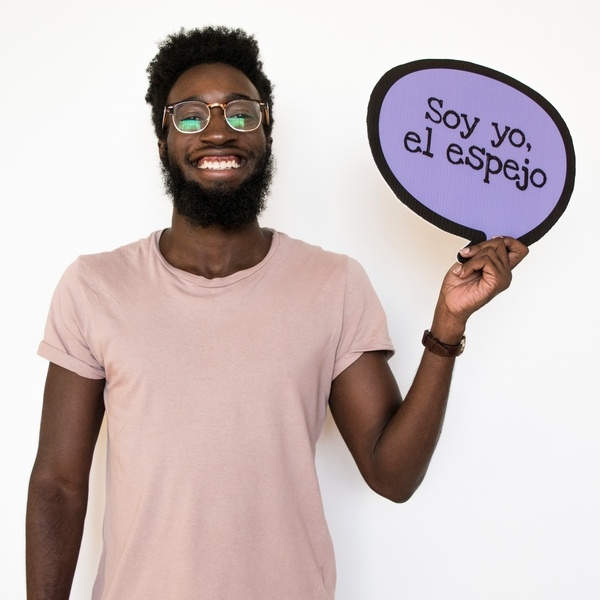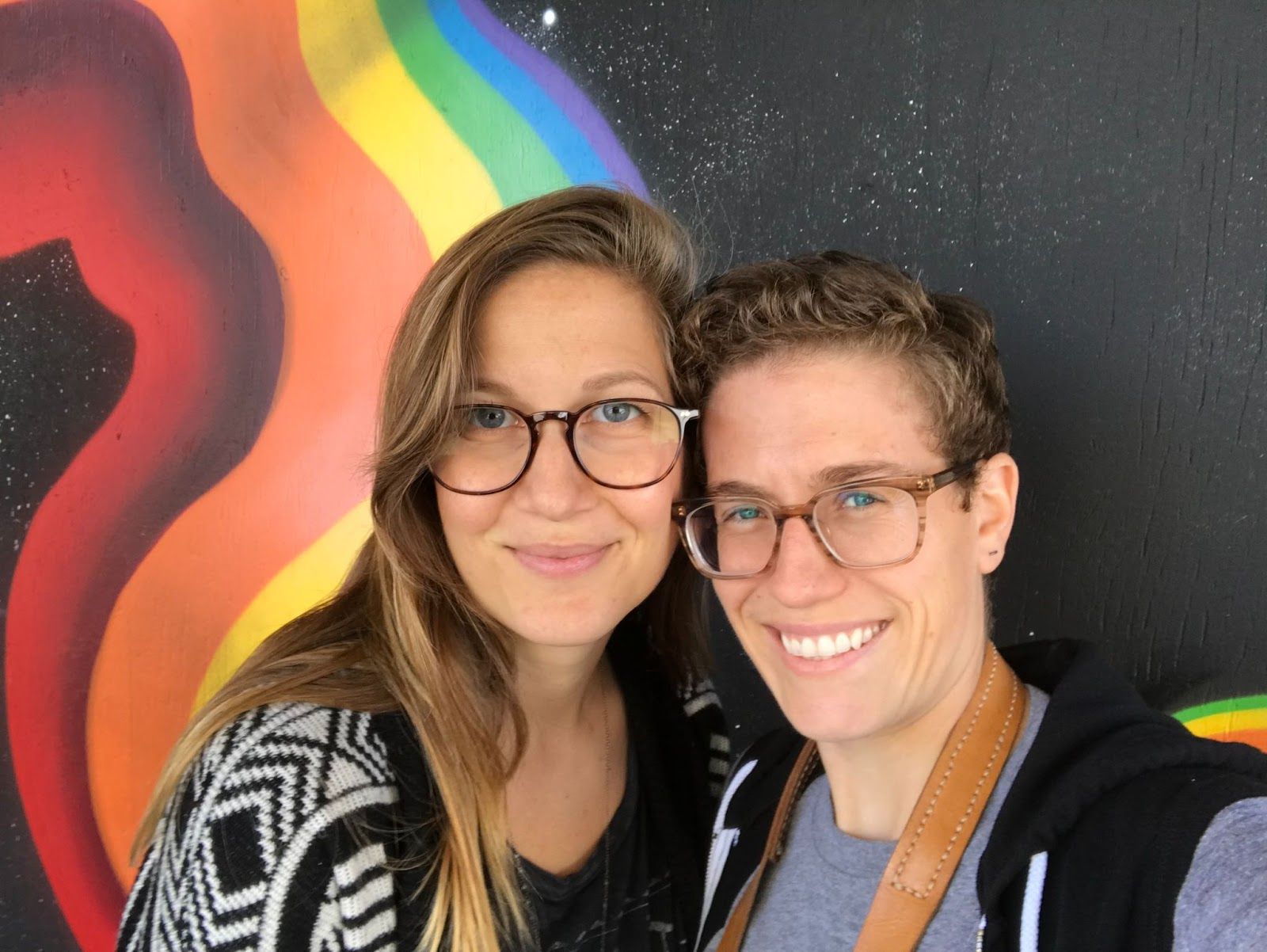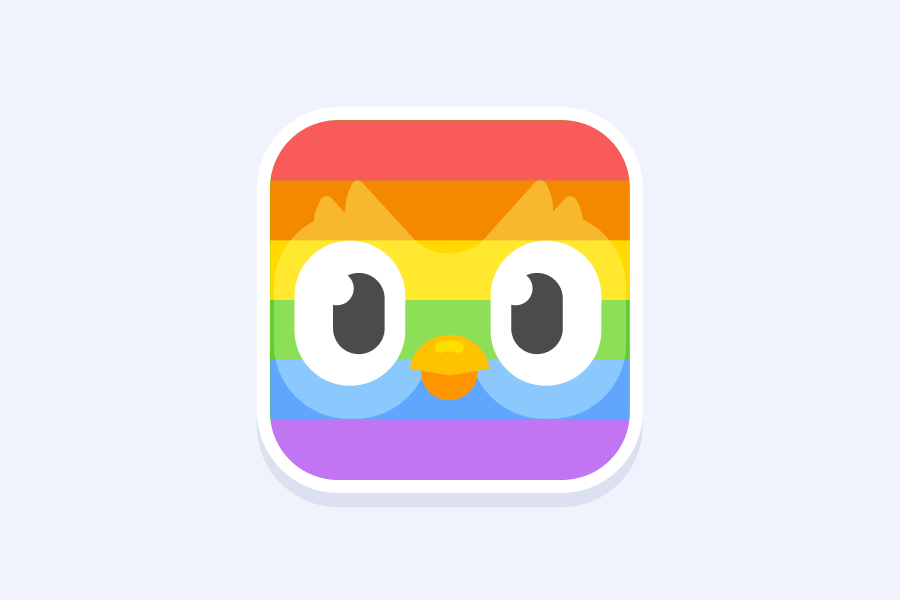We at Duolingo value the importance of a representative and inclusive workplace, and we draw from our varied experiences to build the best language learning products for people across identities and backgrounds. We are a community as diverse as our learners, and even within the LGBTQ community at the company, our differences are vast and interesting.
|
Ming (he/him), Software Engineer II
|

|
I'm a software engineer at Duolingo working to improve learners' experiences in our courses. This Pride Month, to learn about the experiences of other members of the community, I talked to some of my LGBTQ co-workers about their identities and their work at Duolingo.
Graham

|
Graham (he/him), Data Scientist
|
What are some challenges you face navigating the workplace?
I came in the company with the feeling of “I’m not good enough,” especially when I had not seen another Black queer data scientist. It’s hard to be confident and convince people I’m right.
Imposter syndrome is never going to vanish, but I think my personal relationships with co-workers have helped a lot. I don’t have to worry whether a product manager on my team trusts my work because I have a strong personal and professional relationship with them. We had conversations about how my race or my queerness might show up at work.
There’s a lot more to be done. I’m the only Black queer data scientist that I’ve met; I would like that not to be the case in the near future. There’s a lot we can do in terms of hiring folks from underrepresented backgrounds, as well as serving the community in Pittsburgh and elsewhere. At the risk of being corny: we haven’t won yet!
How do your identities affect your experience at work?
One of the most important things in data analysis is how you sample data. Being a marginalized person who has access to a lot of information, it’s always top of my mind to get more representation for folks who are on the margins. So, if we are trying to make improvements to the product for highly-engaged learners, I’d also want to look at learners who may have less time to spend on language learning. If we can build a product that engages and delights those folks as well, I think we’ll have done well.
Jessie and Jackie

|
|
Jessie (she/her), Learning and Curriculum Senior Manager (left in picture)
|
|
Jackie (she/her, they/them), Educational Content Developer II (right in picture)
|
|
What are some challenges you face navigating the workplace?
Jessie: When the pandemic hit, our one-and-a-half-year-old was suddenly home with us, sometimes for weeks, sometimes for months. Sometimes we had time to plan ahead, and sometimes we didn’t. That was challenging. We’ve been lucky that Duolingo has offered us a lot of flexibility to work weird hours or step out for a couple of hours at a time to parent.
Jackie: The beginning was pretty rough. I had just started at Duolingo. Our kid sort of had school, sort of didn’t. We sometimes had childcare, but often didn’t. So we had to try to get our work done while dealing with a lot of distractions and interruptions.
Jessie: Basically, on days when he was home with us, we would have to take our work schedules and divide the day into chunks. We would negotiate along the lines of: “I could do parenting hours from 7am to 8:30am; can you do 9:30 to 10:30?”
Jackie: Jessie and I had to add a special parent-hours calendar to make sure we’d covered the whole day.
How do your identities affect your experience at work?
Jackie: Being a parent is such a huge part of who I am. Having a bilingual kid learning to speak makes my work more exciting. His path in language learning really helps me empathize with learners more. My everyday conversations with him remind me that learning a language is really hard, even for a native speaker. It influences my work in a positive and interesting way.
Jessie: Duolingo is the only place where I’ve worked that’s unequivocally supportive of featuring LGBTQ content. In course design, across the board, it's always been a standard practice to be inclusive. When I joined, I got to work on creating documentation and guidelines around this. We always knew we wanted to be inclusive, but it mattered a lot to me that we got the details right; that we avoided using clichés or being overly simplistic. In my day-to-day work, I think a lot about how we can show different types of identities, families, and relationships.
Sammi
|
Sammi (she/her), Senior Software Engineer
|

|
What are some challenges you face navigating the workplace?
I was in a queer relationship for a while, and it was always interesting to have to “re-come out” to people at work when I was talking about my partner. I had a lot of internal decision-making on whether I should bring it up or not.
This is the first time I’m navigating being a queer professional, so I have a lot of uncertainty in whether other people will understand or how they will react to my queerness. However, what I’ve learned at Duolingo is that no one really bats an eye, so I’ve become very comfortable over time.
How do your identities affect your experience at work?
Being a woman affects my decisions at work, in ways that I’m not always conscious of. I’m still working through internalized sexism and misogyny in how I present myself.
I notice this most commonly when I review other engineers’ code. I add a lot of qualifiers to my comments. I sometimes call my comments “nitpicks” when they probably aren’t, just to make sure other people aren’t offended. When someone disagrees with me, I catch myself saying “it's okay, you can ignore my comment,” even though I should just stand my ground and be confident in my reviews. Over time, with the help of mentors, I've learned how to internalize that my opinions on writing code are valid and worth defending.
As Duolingo continues to focus on providing free education for everyone, we are constantly reflecting on the impact of our decisions across the company. Pride Month is ending soon, but our work to develop inclusive company culture and language courses doesn’t stop!
